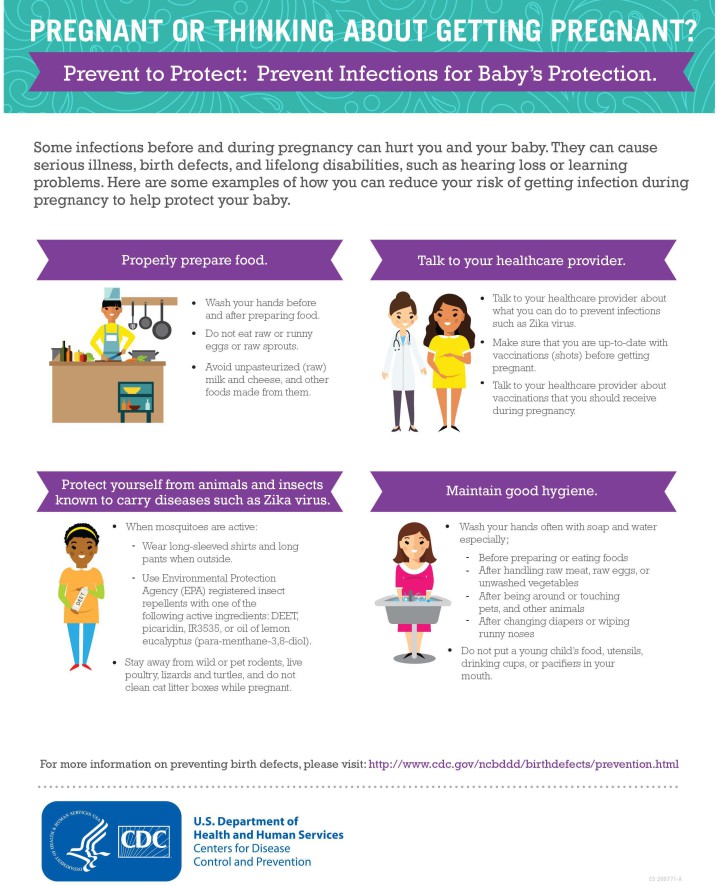From the Haywood Regional Medical Center:
Birth Defects Prevention Month — Increase your Likelihood for a Healthier Baby!
(Clyde, N.C.) January is designated by the Center of Disease Control and Prevention (CDC) as Birth Defects Prevention Month. It is national health observance and Haywood Women’s Medical Center wants to shed light on ways you can lower your chances of having a baby with a birth defect.
“I experienced firsthand the fear and sadness of having a baby with a birth defect,” says Robin Matthews, M.D., Haywood Women’s Medical Center, HRMC. “My second son was born with bilateral clubfoot deformity, which was an isolated birth defect, not associated with any other problems. We were able to start the correction process within a week of his birth, but the impact of this experience really gave me the insights into what families go through when faced with these issues. Although many birth defects are not preventable, due to unknown risks — there are steps you can take to decrease the ones that are identified.”
Birth defects occur on average in 1 out of 33 births. A birth defect is a condition seen at the birth of a baby, or acknowledged before birth by a doctor. Some defects can be seen as soon as a baby is born, such as cleft lip, and others may require testing to bring forth a diagnosis. Some birth defects are genetic and are passed down to the baby from their mother and/or father resulting in abnormal conditions through chromosomal disorders. Other issues could be caused by exposure during pregnancy or having higher risk factors.
Dr. Robin Matthews offers her advice on ways to prevent defects during your next pregnancy:
- See Your Doctor Before Becoming Pregnant. If you’re planning on becoming pregnant, schedule a health care visit with your doctor. Along with a general overview of health, you will also receive important information on nutrition, diet, exercise, or special care specifically geared toward your prenatal wellness.
- Know Your Risk Factors. These include older age, family history of birth defects, having a child already with a birth defect, the use of certain medications around the time of pregnancy, alcohol or drug use during pregnancy, or current health conditions, such as diabetes or obesity, can all increase the risk of having a baby with birth defects.
- Take A Daily Multivitamin Before And During Pregnancy. Prenatal vitamin supplements contain the recommended amounts of the vitamins and minerals you will need during your pregnancy, such as vitamins A, C, and D; folic acid; and minerals such as iron.
- Maintain A Healthy Weight. According to the American Congress of Obstetricians and Gynecologists the most common obesity-related birth defects are neural tube defects, heart defects, and cleft palate. If you are planning a pregnancy, the best way to prevent problems caused by obesity is to be at a healthy weight before you become pregnant.
- Use Medications Wisely. Although rare, there are some medications that are linked to birth defects. If you are taking any type of medication, discuss with your doctor before you become pregnant, or as soon as you do, to see if it could affect you or your baby.
- Do Not Use Alcohol Or Illegal Drugs. Fetal alcohol spectrum disorders is a term that describes different effects that can occur in the fetus when a woman drinks during pregnancy. These effects may include physical, behavioral and learning disabilities that can last a lifetime. This is 100 percent avoidable if alcohol consumption is avoided during pregnancy.
- Prevent Infections. Take care of yourself and prevent infections from occurring that could harm yourself or your baby during pregnancy, such as the flu or rubella.
- Avoid Known Harmful Agents. Limit your expose to lead or mercury and avoid taking high levels of Vitamin A.
- Prenatal Diagnostic Tests. There are diagnostic tests available that can detect certain disorders before a baby is born. These tests can also shed light on whether you are at a higher risk for particular defects, or if you and your partner have any inherited defects or chromosomal disorders. If diagnostic tests show that there is a problem, a genetics counselor or other health care provider can help explain the results and provide guidance in making choices.
Talk with your doctor before becoming pregnant and discuss ways to prevent birth defects specifically geared toward you. Schedule an appointment today by calling Haywood Women’s Medical Center at 828.452.5042. If you do not have a primary care doctor call our Physician Referral Line at 800.424.DOCS (3627) or visit http://myhaywoodregional.com/FindaDoc.
Haywood Women’s Medical Center is an OB/GYN practice located in Clyde on the campus of HRMC. Services at the practice include obstetrics, well-women gynecological exams, adolescent gynecological care, ultrasounds, minimally invasive hysterectomy, abnormal pap smear treatments, endometrial ablation, infertility evaluation, breast and cervical cancer screenings, contraceptive management including IUDs, hormone replacement, premenopausal symptoms, laparoscopic surgery, incontinence, pelvic pain, pelvic prolapse and treatment of menstrual disorders.





Very informative and I agree to everything 100%.While we may never know if our child will have birth defects or not we can however minimize the chances. I’m just waiting for a positive result using the free pregnancy test that I got from ttckit and I’m hoping to have baby#2 soon. I’ve already gotten approval from my obgyn.